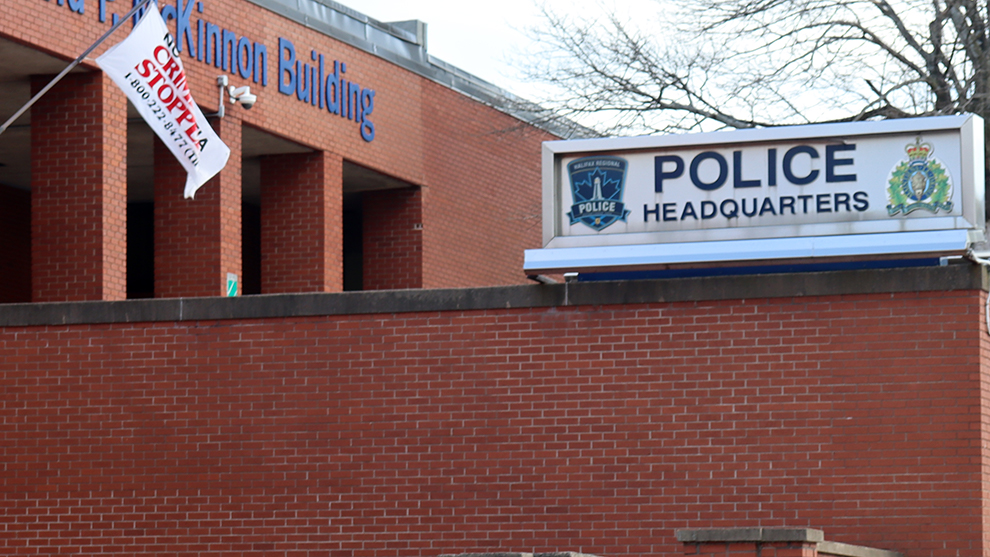Halifax woman’s complaints about police not uncommon, say advocates for sex assault victims
Carrie Low suing Halifax Regional Police and RCMP, claiming they mishandled her case

caption
A Halifax woman is suing Halifax Regional Police.Advocates who work with victims of sexualized violence say a woman who claims her assault complaint was mishandled by police is far from the first to feel unheard.
Carrie Low is suing Halifax Regional Police (HRP) and RCMP, claiming the way they handled her case was negligent and discriminatory.
Low reported a sexual assault to police in May 2018. She alleges the sexual assault investigation team (SAIT), an integrated unit made up of members of HRP and RCMP, failed to meet the standard of care required in handling a case of that nature.
Emma Halpern, executive director of the Elizabeth Fry Society of Mainland Nova Scotia, has been working with Low since the summer of 2018. She said while Low’s lawsuit is unusual because of the legal action she’s taken, many survivors of sexual assault don’t feel heard. Related stories
“The experience of having the police and/or other aspects of our justice system fail women who’ve been sexually assaulted is sadly common,” Halpern said.
Mike Dull, Low’s lawyer, filed the suit in Nova Scotia Supreme Court on Monday. He said there were various points in the SAIT’s investigation where police failed to take appropriate action and move the investigation forward.
The statement of claim alleges that after a sexual assault exam at a hospital, Low spoke with a police officer, who told her to put her clothes in a plastic bag. The officer told her someone from SAIT would collect the bag from her residence later that evening.
Low claims that investigators failed to collect the clothing, which was evidence in the case, until 10 days later.
She alleges that she informed police that her shoe and her underwear remained at the scene of the crime, and told them she could provide them with the location. She claims police failed to go there.
“We believe at this point that they never went to obtain that evidence,” Dull said in an interview.
Dull also claims Low’s toxicology test was mishandled by police, and therefore the results still haven’t been obtained.
The statement of claim alleges that up to this point, police have not attended the location of the assault, collected evidence at the scene, or interviewed witnesses or suspects.
Without evidence, Low was labelled a “drunk” and a “liar,” according to the statement of claim.
Dull said there’s reason to believe the investigation into Low’s case was wrongfully prevented from moving forward.
“We have some sense from investigators who have spoken out in confidence that internally there was not an investigation done because she was labelled a liar at the very outset,” he said.
Calls for better training
Halpern said police officers need better education on how to deal with sexual assault complaints to ensure complainants’ cases are properly handled.
“There’s lots that needs to be done to improve this process at every level, not just the level of the police, but also the level of the courts,” she said.
Jackie Stevens, executive director of the Avalon Sexual Assault Centre, agrees. She said better training for first responders and investigators should be implemented.
“It’s imperative that training address anti-oppressive practices and the myths of stereotypes because those remain rampant,” she said.
Stevens said victims can be hesitant to report cases of sexual assault, often because they fear their complaints will be met with judgment or that they will not be believed.
Eight in 10 sexual assaults are not reported to police, according to the 2014 General Social Survey on Victimization.
“We know from the work that Avalon Centre does with people that have been targeted for sexualized violence that not everyone reports,” said Stevens. “And oftentimes there hasn’t been a report because of the widespread perception around how they may be treated through the legal system.”
On top of that, Stevens said, it is not uncommon for victims who have reported to feel their complaints weren’t handled appropriately.
“We do sometimes hear from people who have had negative experiences when they have reported to police where they felt they had been judged or blamed or not believed, or that they didn’t feel that appropriate measures were taken during the investigation,” she said.
The allegations contained in Low’s suit have not been proven in court. No statements of defence have been filed.
A spokesperson for the RCMP said HRP would be handling media inquiries into Low’s case. In an emailed statement, Const. John MacLeod, an HRP spokesperson, said the police force was declining to comment on a civil case that is before the courts.
“It is important to reiterate that this is an open and active file that is being thoroughly investigated,” MacLeod wrote.
‘Trailblazing’ action
Dull, Low’s lawyer, said the lawsuit is the first of its kind in Nova Scotia, and possibly in Canada. He called Low’s actions “trailblazing.”
“If going to the police is difficult, which we know it is statistically, suing the police is even more difficult,” he said. “And so it’s not for the faint of heart.”
Low is seeking damages, claiming that police have subjected her to further psychological trauma.
Dull said Low is hoping police will recognize the claim that her experience with law enforcement is not the only one of its kind, and her case will effect change in how sexual assault cases are handled in the future.
When asked how Low was feeling in the days following the launch of the lawsuit, Halpern said she was doing “OK.”
“She’s strong and resilient and brave and committed to not having this all be in vain,” she said.
